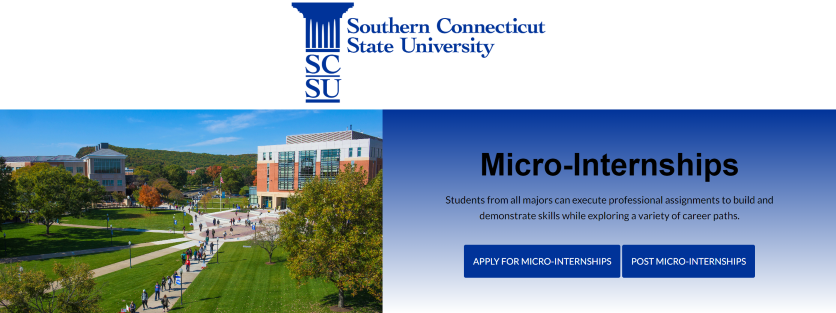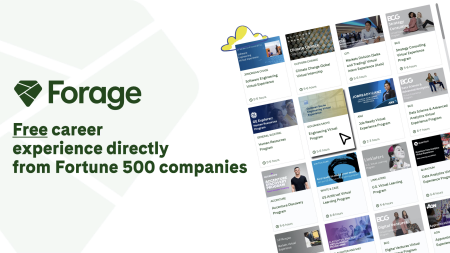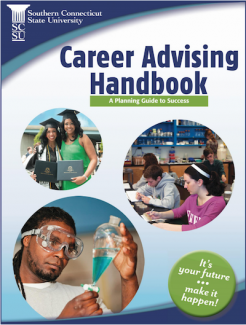
Prepare to Find a Job
You can search for jobs and internships using JOBSs, networking, attending career fairs, participating in employer information sessions and recruiting events, or meeting with the team in the Office of Career and Professional Development. By attending career fairs and employer recruitment events you will find out about more job and internship opportunities. You can also use on-line resources to research potential employment opportunities. Graduate students who are considering academic and post-doc jobs should visit this area for additional resources.
Campus Recruitment
On campus recruitment provides students with an opportunity to connect with employers from various industries for full-time, part-time, and internship positions throughout the school year.
- Sign up for JOBSs to learn more about upcoming events.
Job Opportunities Benefiting Southern Students (JOBSs) is an online job board available to students and recent alumni looking for full-time or part-time work, co-ops, internships, and on-campus student employment, or volunteer opportunities. Learn about JOBSs.
Student Employment
Working part-time while attending college has many benefits, including learning the expectations of the workplace, improving your time management skills, and developing other abilities necessary for success after you graduate. Besides providing online job listings through JOBSs and assisting with your part-time job search, the Office of Career & Professional Development collaborates with the Office of Financial Aid to facilitate the Federal Work Study Program. Learn about student employment at Southern.
Career Fairs
A career fair is an event where large numbers of employers gather at a venue such as a college or convention center to meet potential candidates. It is a great opportunity to meet and make direct contact with company representatives. Our office hosts a number of on campus career fairs and provides an opportunity for students to network with employers from various industries within the private, non-profit and government sectors.
Learn about Career Fair Preparation
Develop A Career Toolkit
With a Career Toolkit you will be ready to interview for jobs and internships. You will need:
- A resume
- A cover letter
- A LinkedIn profile- Develop a LinkedIn profile
Instructions on how to create a profile
Have an approved cover letter and resume in JOBSs.
The prospect of selling yourself to potential employers in only one or two pages may seem impossible, but these resume samples will help to get you off to a good start. They are MS Word documents, so you can manipulate them to create a resume that reflects your own skills and experience. Find your School to view a resume that has been tailored towards your goals.
- College of Education Sample Resume Sample Resume (docx)
- School of Business Sample Resume (docx)
- College of Health and Human Services Sample Resume (docx)
- College of Arts and Sciences Sample Resume (docx)
- School of Graduate Studies Sample Resume (docx)
Resume Construction
The Career Peer team has been trained in resume writing and development to be able to advise peers on early resume formatting and constructing. If you have never created a resume, contact the Office of Career and Professional Development for an appointment.
If you have created a resume before, contact the appropriate Career Coach.
Resume Tips and Guides
Download our Career Advising Handbook for resume samples to help you with creating your own document.
Whether you are a freshman or a senior, the Career Advising Student Handbook will help you navigate your journey from college to career. Use the Four Year Career Planning Guide to stay on track with career planning activities such as choosing a major, getting career related experience with co-ops or internships, and beginning your first professional job search. In addition, you will find a 5-step plan to help you choose a major, tips to help you with your job search, interviewing strategies, and samples to help you with creating your resume, cover letter, and post interview thank you letters.
Cover letters are a customized marketing tool; they highlight information from your resume that specifically relate to the company and job to which you are applying.
Even if an employer does not require a cover letter, it is recommended that you always include one. This is a chance for you to stand out from the crowd and market yourself to the specific employer. Though writing a cover letter adds an additional step to your job search process, it’s worth it!
An effective cover letter is:
- Professional: Organized as a business letter with your complete address in the upper right-hand or left-hand side or stationery heading, a date and a heading with recruiter/hiring manager’s information, and closing greeting and signature
- Concise: Uses concise paragraphs and/or bullet points to highlight pertinent information
- Addressed appropriately to a person. Dear Ms. Last Name (Dear Ms. Smith) or Dear Hiring Manager if you are unable to find the correct hiring personnel.
- Clear:
- Demonstrates your interest in the specific company and job – why you want to work there and in that capacity (job or internship) – and that you researched the company
- Highlights specific skills you possess that mirror the job description
- Provides brief examples of your skills/accomplishments that relate to the job
- Convinces the employer that you are a top candidate
- Thanks the employer for considering you as a candidate
Big Interview is an online system that combines training and practice to help you improve your interview technique and build your confidence through:
-
Challenging, virtual mock interviews for all experience levels and dozens of industries
-
A database of thousands of interview questions with tips on how to answer them
-
The ability to rate and share your interview answers for feedback
-
Comprehensive video training curriculum covering all aspects of landing a job
-
Step-by-step interview Answer Builder for crafting answers to behavioral questions
Big Interview Student Guide
Not sure where to start with Big Interview? Here's your 7-step guide- Big Interview Student Guide
Parker Dewey Micro-Internships

When you are launching your career, Micro-Internships provide a tremendous opportunity. Not only can you explore different career paths and work on interesting assignments, you can also demonstrate your abilities to potential employers while building your professional portfolio and network. Beyond that, your academic experience will improve as you apply what is taught in the classroom to the real world (and vice versa). Oh, did we forget to mention that you get paid for all of this?
What are Micro-Internships?
Micro-Internships are short-term, paid, professional assignments that are similar to those given to new hires or interns. These projects enable Career Launchers to demonstrate skills, explore career paths, and build their networks as they seek the right full-time role. Unlike traditional internships, Micro-Internships can take place year-round, typically range from 5 to 40 hours of work, and are due between one week and one month after kick-off. Micro-Internships are used by companies ranging from those in the Fortune 100 to emerging start-ups, and go across departments including sales, marketing, technology, HR, and finance.
Micro-Internships are facilitated via the Parker Dewey platform, which connects Career Launchers with Companies in need of support.
Micro-Internships for Southern Connecticut State University
Micro-Internships for students and recent graduates of Southern Connecticut State University
Forage

-
Showcase your skills. Find your career fit.
-
Forage offers bite-sized 5-6 hour virtual work experience programs that give students a genuine career advantage with Fortune 500 companies
-
Forage virtual work experiences are always free for students as partner companies are committed to ensuring equity, diversity, and access of opportunity for everyone.
